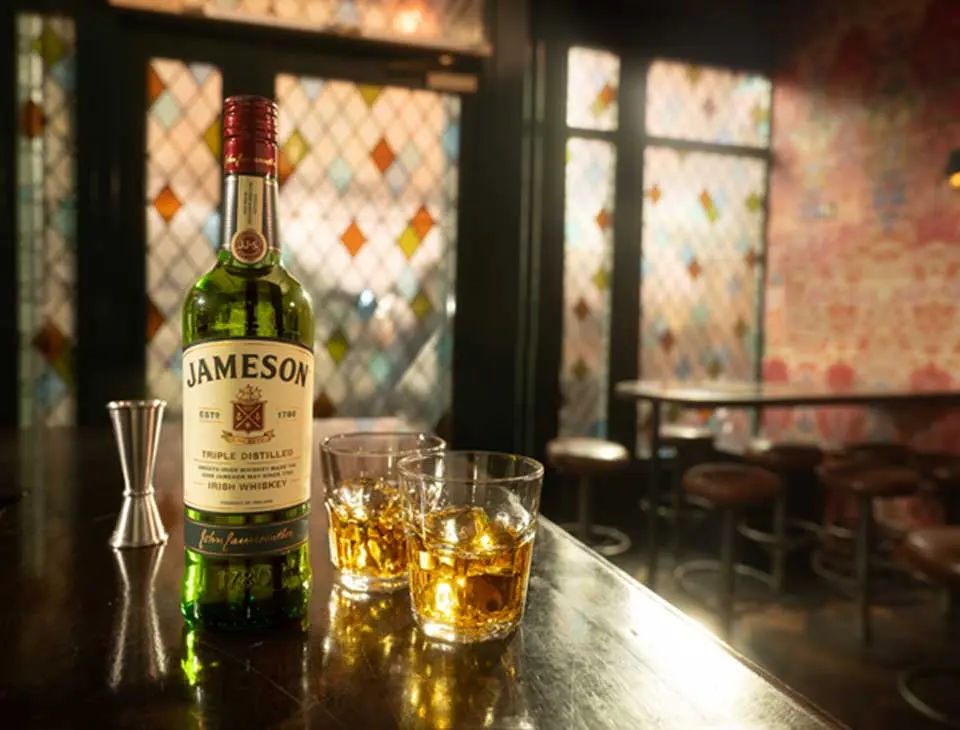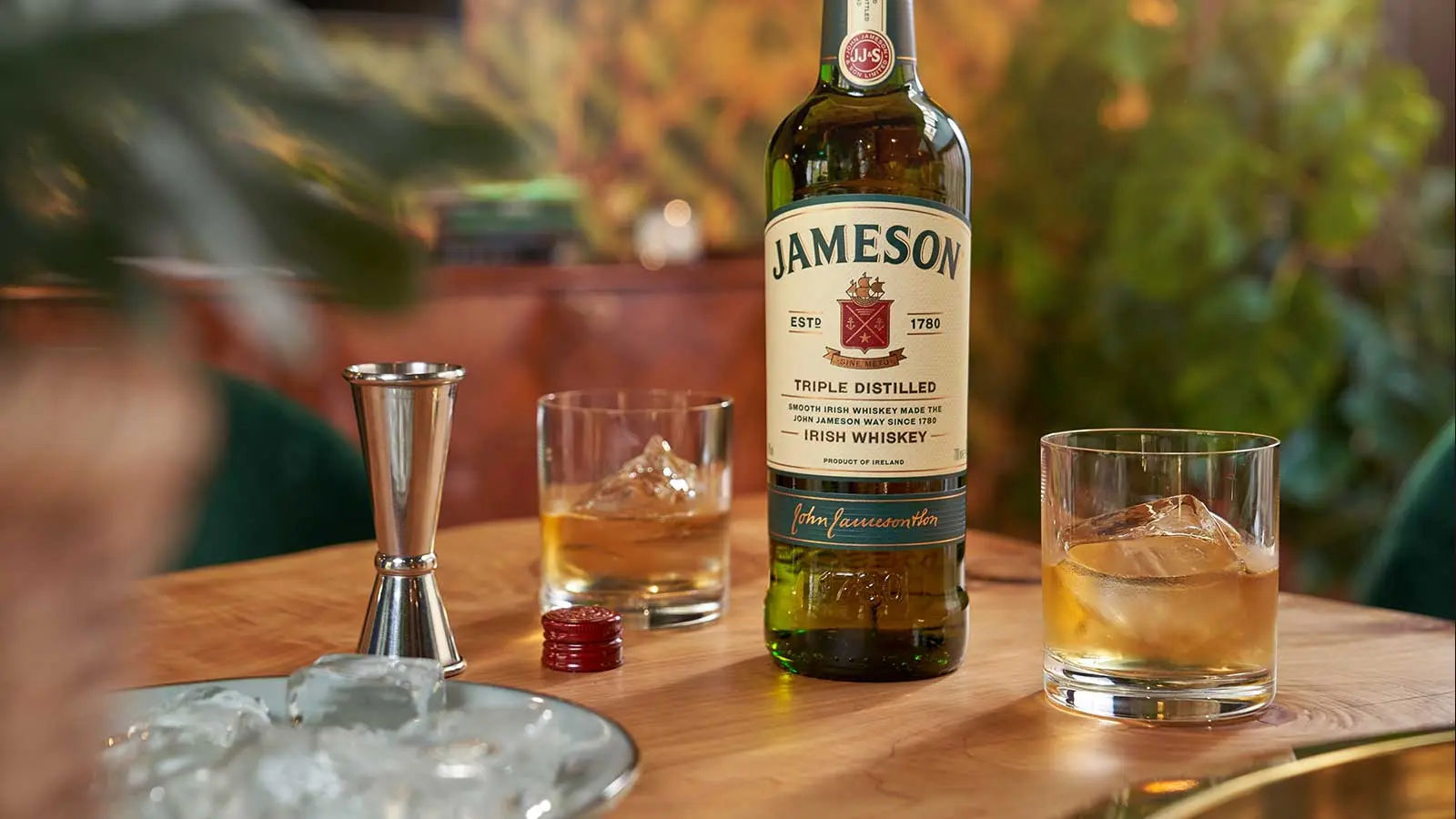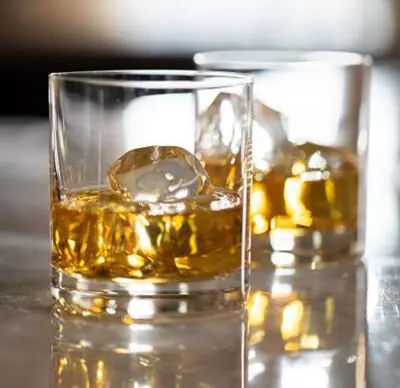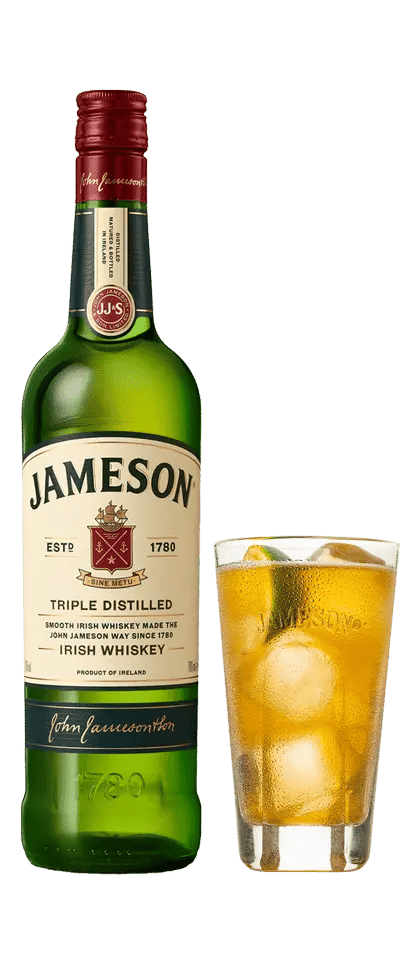
On the Rocks, But Never Frozen
Does Whiskey Really Freeze? Debunking the Frozen Whiskey Myth
Whiskey has warmed our insides and fueled fireside debates for centuries. But one particular bone of contention has had many a whiskey connoisseur raising an eyebrow: ‘Can whiskey truly freeze?’
While we may love our whiskey on the rocks, the idea of it turning into a glacier in our freezers seems, well, a tad too frosty for comfort. So pour yourself a glass, and let’s unravel this whiskey enigma once and for all.
Does Whiskey Freeze?
No, whiskey doesn’t freeze under normal conditions. The alcohol content in whiskey, typically 40% to 60%, has a lower freezing point than water. While water freezes at 0°C (32°F), whiskey must be exposed to extremely cold temperatures below -27°C (-17°F) to freeze solid. In a home freezer, whiskey simply won’t freeze.

The misconception that whiskey can freeze stems from the fact that whiskey may partially freeze when diluted with water, causing it to look slushy. While it is true that water freezes at a higher temperature than alcohol, the alcohol content in whiskey is high enough to prevent it from freezing in a standard freezer.
Another myth is that freezing accelerates the ageing process of whiskey, resulting in a smoother and more mature taste. But that’s not true. Ageing is a slow chemical process that occurs over time through interactions with the wood in the barrel.
Some even believe that freezing enhances the texture of the whiskey, making it smoother and silkier. However, freezing can cause the compounds in the whiskey to separate, leading to a change in texture, mouthfeel and flavour profile .
What Temperature Does Whiskey Freeze?

Whiskey has a freezing point of approximately -27°C (-17 °F), depending on its alcohol content. Alcohol has a much lower freezing point than water, around -115°C (-175°F) for pure ethanol. When whiskey is diluted with water, the freezing point is higher .
The concentration of alcohol in whiskey makes it nearly impossible to freeze in a standard home freezer, which typically operates around -18°C (0°F).
Can You Keep Whiskey In The Freezer To Keep It Chilled?
No, it is not recommended to keep whiskey in the freezer for an extended period. While whiskey does not freeze in a standard home freezer, it can be affected by the icy temperatures.
At Jameson, we prefer our jokes cool, but our whiskey at room temperature. Stashing it in the freezer? Maybe not the best move. Whiskey thrives at temperatures where its rich flavours can do a lively jig, not a slow waltz. Chill it too much, and you might just put those vibrant notes on ice.

Taste Implications of Keeping Your Whiskey in the Freezer
Jameson’s whiskey isn’t just any spirit—it’s a nuanced fusion of flavours that prefer a cosy ballroom over a chilly ice rink. Sub-zero temperatures might just put those graceful moves on thin ice. Here’s how freezing whiskey might trip up your sip:
Dulls the flavour
When whiskey is excessively chilled, its complex array of flavours becomes dulled or suppressed. Whiskey has a delicate balance of notes and aromas best appreciated at certain temperatures. By freezing it, instead of a rich, multifaceted tasting experience, you might end up with a more monotonous or bland profile. And where’s the joy in that?
Affects aroma
The volatile compounds responsible for the distinct aromas of whiskey may become less pronounced when whiskey is cold.
This means that some of the more delicate and subtle aromas that contribute to the overall flavour profile of the whiskey may not be as noticeable when the whiskey is chilled.
Thicker Texture
Imagine savouring a well-aged whiskey, expecting that signature smooth and velvety glide on your palate, only to be met with a texture more akin to syrup. That’s the unexpected twist you might encounter when you freeze whiskey.
The oils and fats, usually invisible players in the drink’s profile, can rise to prominence when chilled to the extreme. They may solidify or thicken, turning that anticipated silky sip into a heavier, almost sluggish feel.
Numbing Effect
When whiskey is exposed to icy temperatures, the chill acts like a fog on your taste buds. The cold masks those delicate caramel, oak, and fruit whispers, making it akin to listening to a symphony with earmuffs on. The essence of the spirit gets lost, leaving you with a shadow of the experience you anticipated.
More on Freezing Whiskey
Does cold temperature ruin whiskey?
Cold temperatures can affect whiskey, but not ruin it. Extremely cold conditions can dull the flavours, mute the aromas, and change the texture. While it won’t destroy your whiskey, it will make it less enjoyable by hiding its complex notes.
Is it ok to chill whiskey in the fridge?
Chilling whiskey in the fridge isn’t the best idea if you want to enjoy its rich flavours and aromas. Whiskey shines at room temperature or slightly chilled with whiskey stones that don’t suppress its flavour profile.
Should you freeze or refrigerate whiskey?
Freezing or refrigerating whiskey is not recommended. Freezing can mute the flavours and aromas, and refrigeration can dull its complex notes. Instead, use whiskey stones to chill your drink without compromising its quality.
Can whiskey freeze solid?
Whiskey doesn’t freeze solid in a typical home freezer because of its high alcohol content. Its freezing point is around -27°C (-17°F), much lower than a standard home freezer’s temperature, so it won’t turn solid.
Why doesn’t whiskey freeze?
Whiskey doesn’t freeze because its high alcohol content lowers its freezing point. While water freezes at 0°C (32°F), whiskey remains liquid until it hits around -27°C (-17°F). Your home freezer just can’t get it that cold.
Want to learn more?
Check out our blog to discover our insider tips on the correct whiskey storage. Or, to continue your quest for whiskey knowledge, check our Whiskey Guide.

